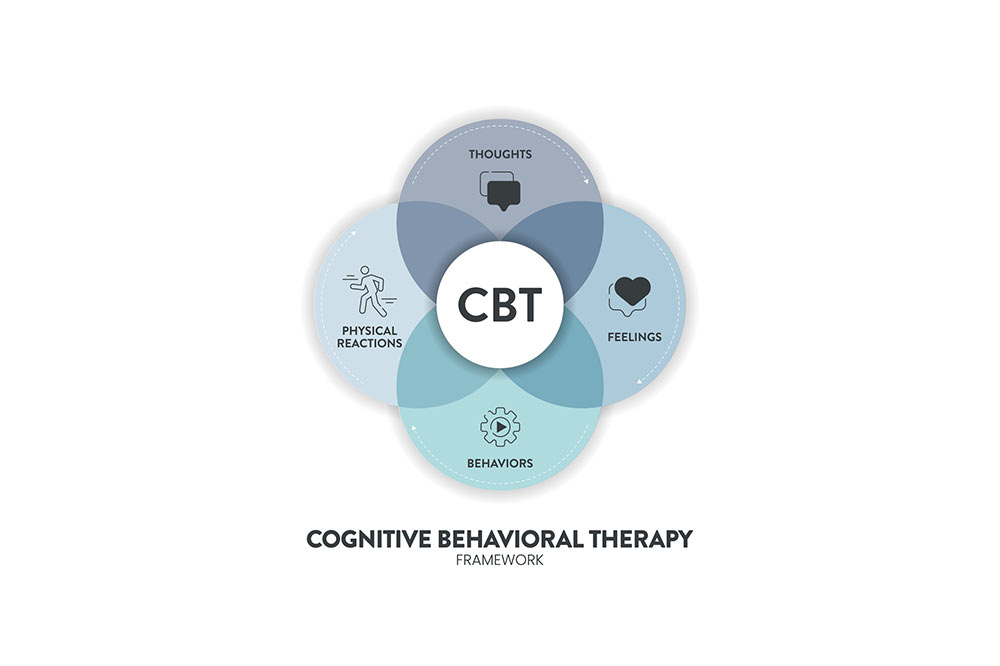Cognitive Behavioral Therapy (CBT) is a highly effective treatment for anxiety disorders, offering practical strategies to manage and reduce symptoms. At Adventure Therapies, we provide remote CBT services for residents in Manhattan, NY, making it convenient for you to receive the help you need from the comfort of your home. This blog post explores how CBT can help with anxiety and what you can expect from the therapy process.
What is Cognitive Behavioral Therapy (CBT)?
Cognitive Behavioral Therapy is a form of psychotherapy that focuses on identifying and changing negative thought patterns and behaviors. By addressing these patterns, CBT helps individuals develop healthier ways of thinking and reacting to anxiety-inducing situations.
How CBT Helps with Anxiety Disorders
CBT is particularly effective for treating various anxiety disorders, including generalized anxiety disorder (GAD), social anxiety disorder, panic disorder, and specific phobias. Here’s how CBT can help:
Identifying Negative Thought Patterns
One of the core principles of CBT is identifying and challenging negative thought patterns. Anxiety often stems from irrational or exaggerated thoughts, such as catastrophizing or overgeneralizing. CBT helps individuals recognize these thoughts and reframe them in a more realistic and balanced way.
Developing Coping Strategies
CBT teaches practical coping strategies to manage anxiety symptoms. These strategies may include deep breathing exercises, progressive muscle relaxation, and mindfulness techniques. By incorporating these practices into daily life, individuals can reduce their overall anxiety levels and respond more calmly to stressors.
Gradual Exposure
For specific phobias and social anxiety, gradual exposure is a key component of CBT. This involves slowly and systematically exposing individuals to the feared situation or object in a controlled and safe manner. Over time, this process helps reduce fear and avoidance behaviors.
The CBT Process: What to Expect
Initial Assessment
The first step in CBT is an initial assessment, where the therapist gathers information about your anxiety symptoms, triggers, and history. This helps tailor the therapy to your specific needs and goals.
Goal Setting
Based on the assessment, the therapist and client collaboratively set specific, measurable goals. These goals provide a roadmap for the therapy process and help track progress over time.
Weekly Sessions
CBT typically involves weekly sessions, each lasting about 45 to 60 minutes. During these sessions, the therapist and client work together to explore thought patterns, practice coping strategies, and apply new skills.
Homework Assignments
A unique aspect of CBT is the use of homework assignments. These tasks, which may include journaling, practicing relaxation techniques, or completing exposure exercises, help reinforce the skills learned in therapy and promote real-world application.
Ongoing Evaluation
Throughout the therapy process, progress is continually evaluated. The therapist and client discuss improvements, setbacks, and any necessary adjustments to the treatment plan. This ongoing evaluation ensures that the therapy remains effective and aligned with the client’s goals.
Benefits of Remote CBT
Remote CBT offers numerous benefits, particularly for residents in bustling Manhattan, NY. With remote therapy, you can:
- Access therapy from the comfort of your home or office.
- Save time and avoid the hassle of commuting.
- Maintain flexibility in scheduling sessions around your busy lifestyle.
Why Choose Adventure Therapies?
Adventure Therapies is dedicated to providing high-quality, remote CBT services tailored to meet the needs of Manhattan residents. Our licensed therapists are experienced in helping clients overcome anxiety disorders and achieve lasting improvements in their mental health.
Take the First Step Towards Managing Anxiety
If you’re struggling with anxiety, Cognitive Behavioral Therapy can provide the tools and support you need to manage your symptoms effectively. Contact Adventure Therapies to schedule your initial consultation and start your journey towards better mental health. For more information, visit our Cognitive Behavioral Therapy page.




